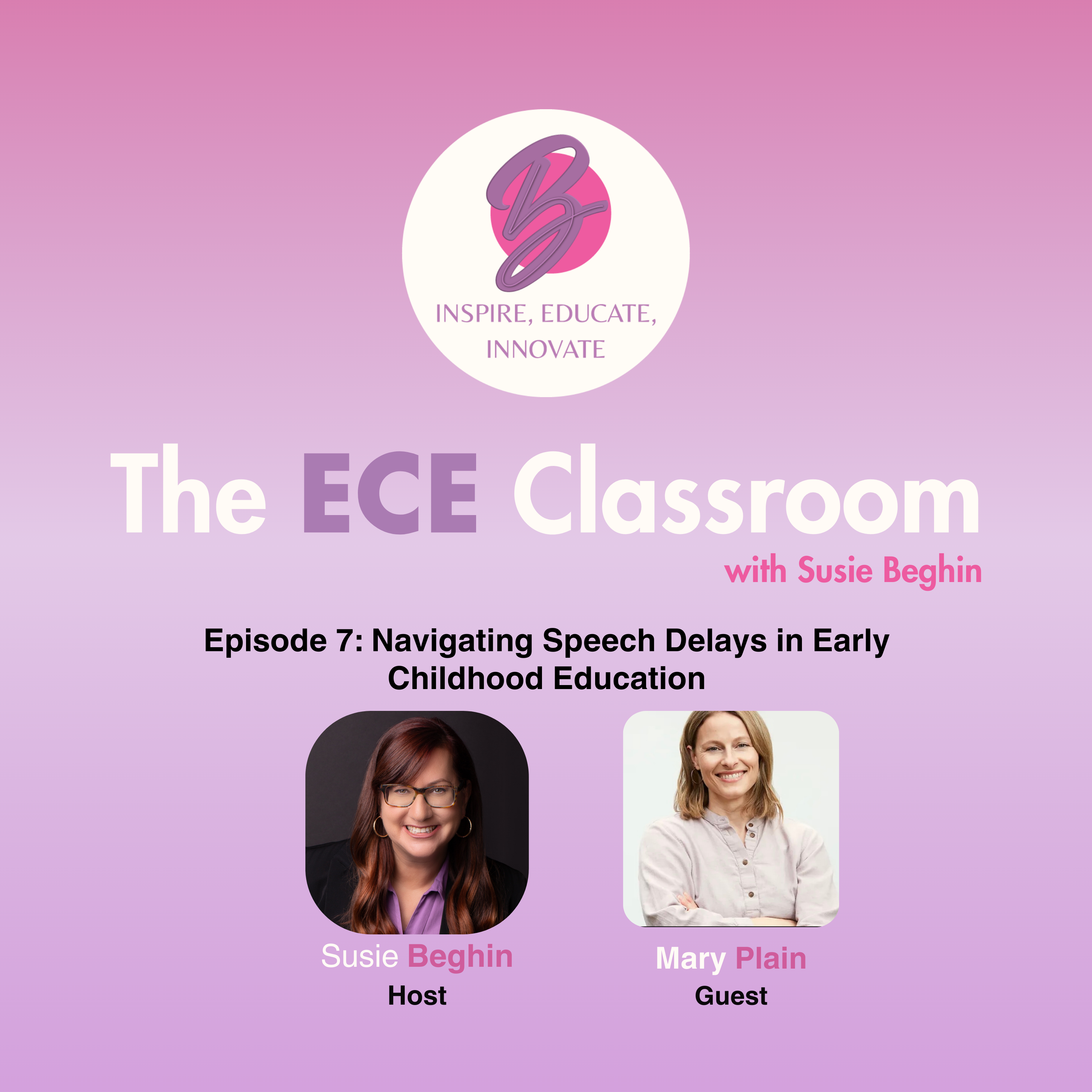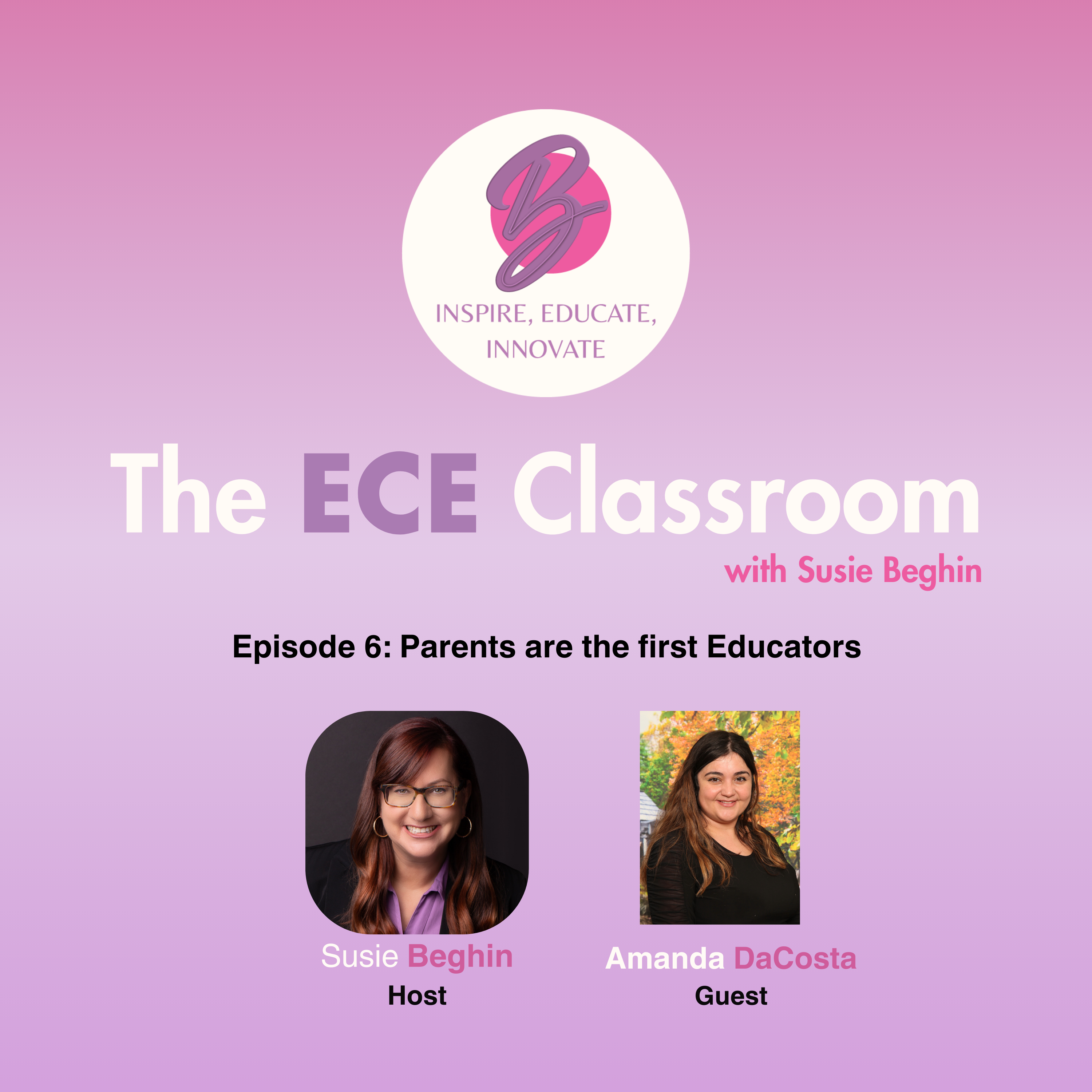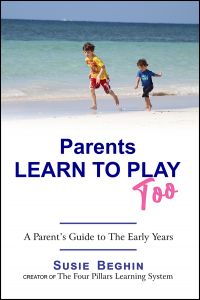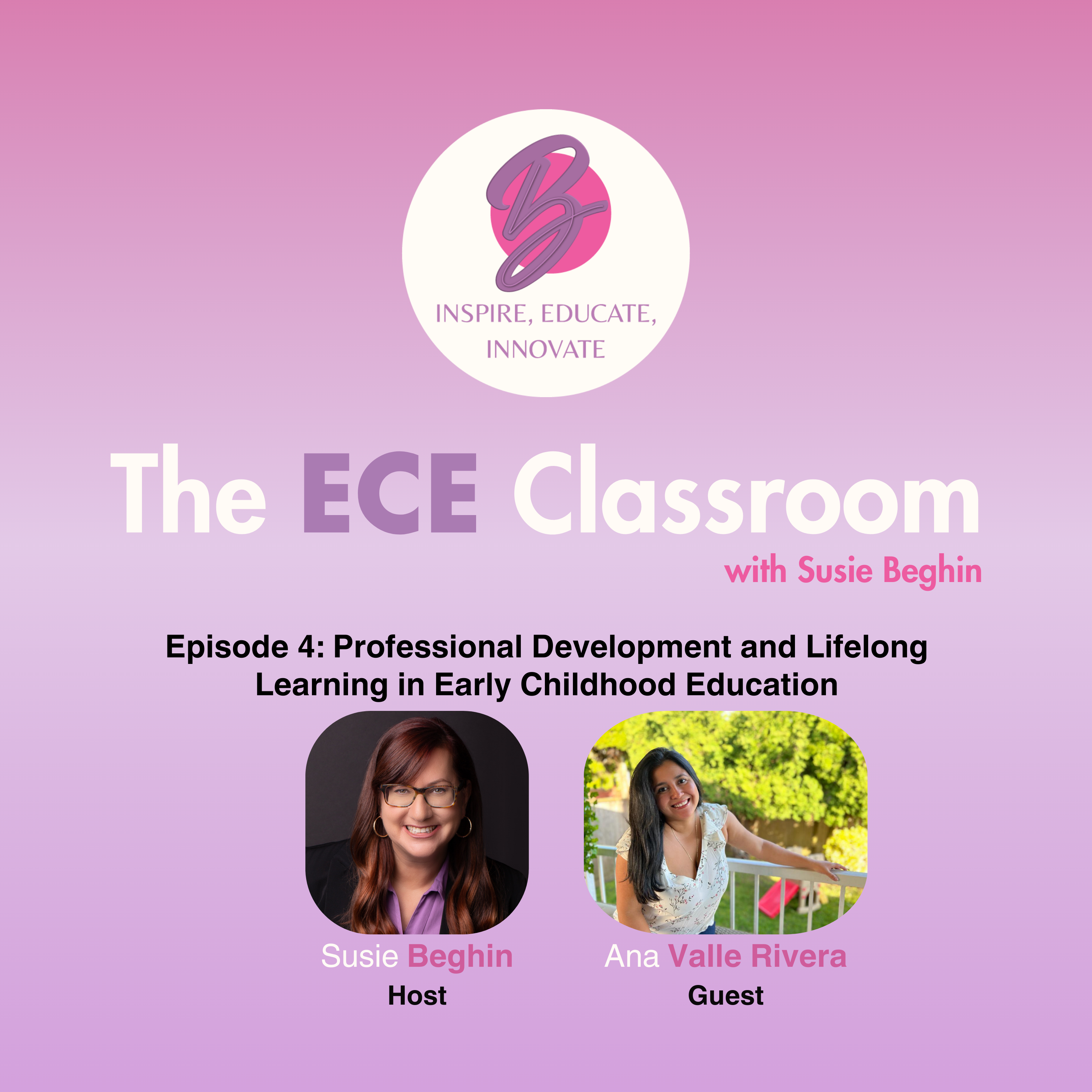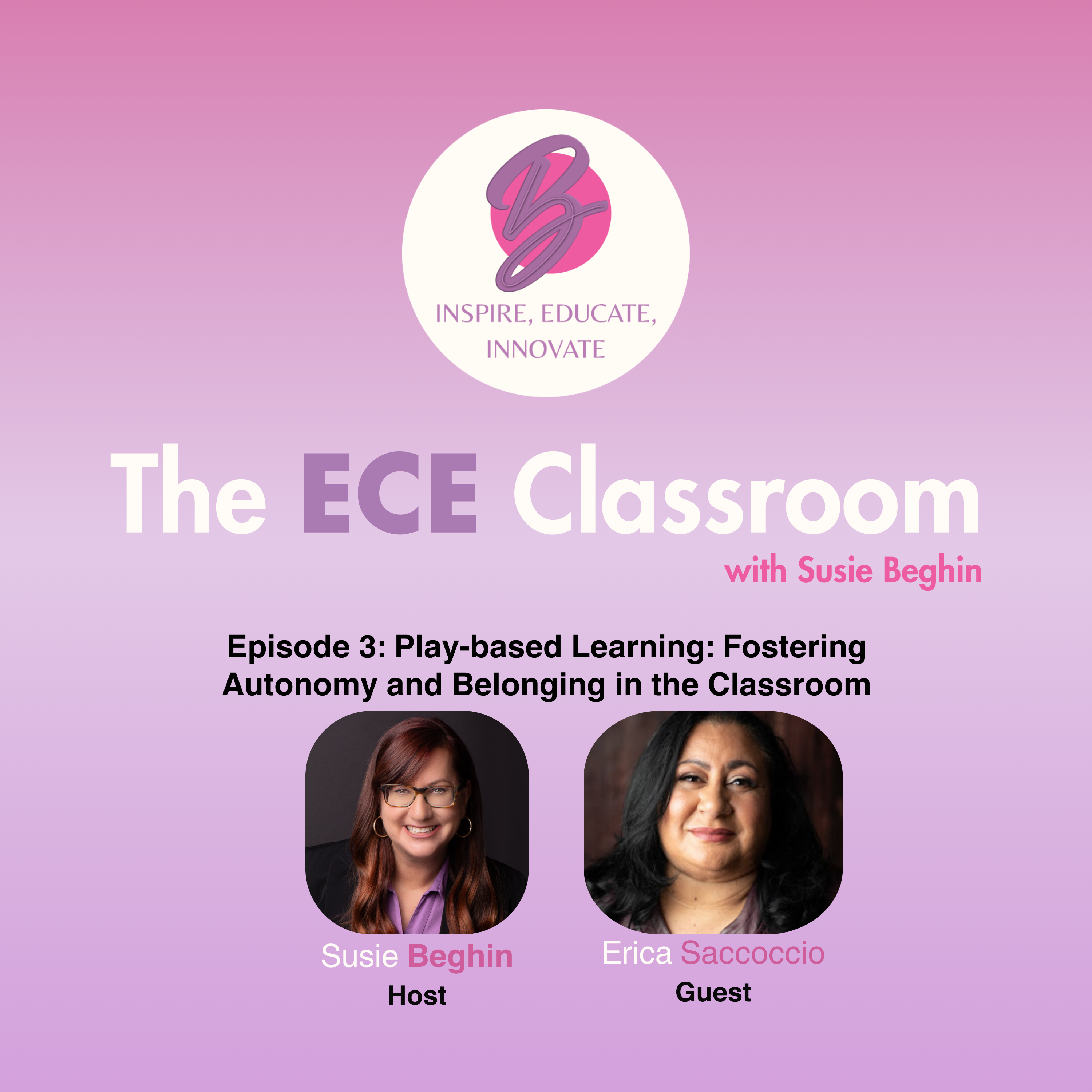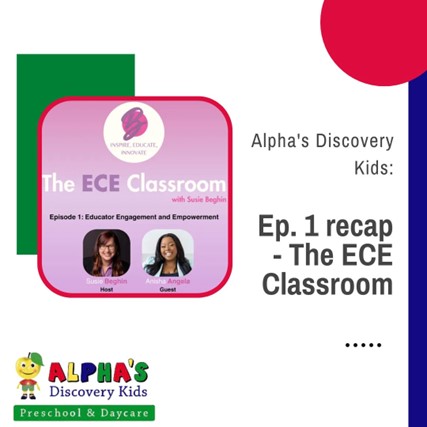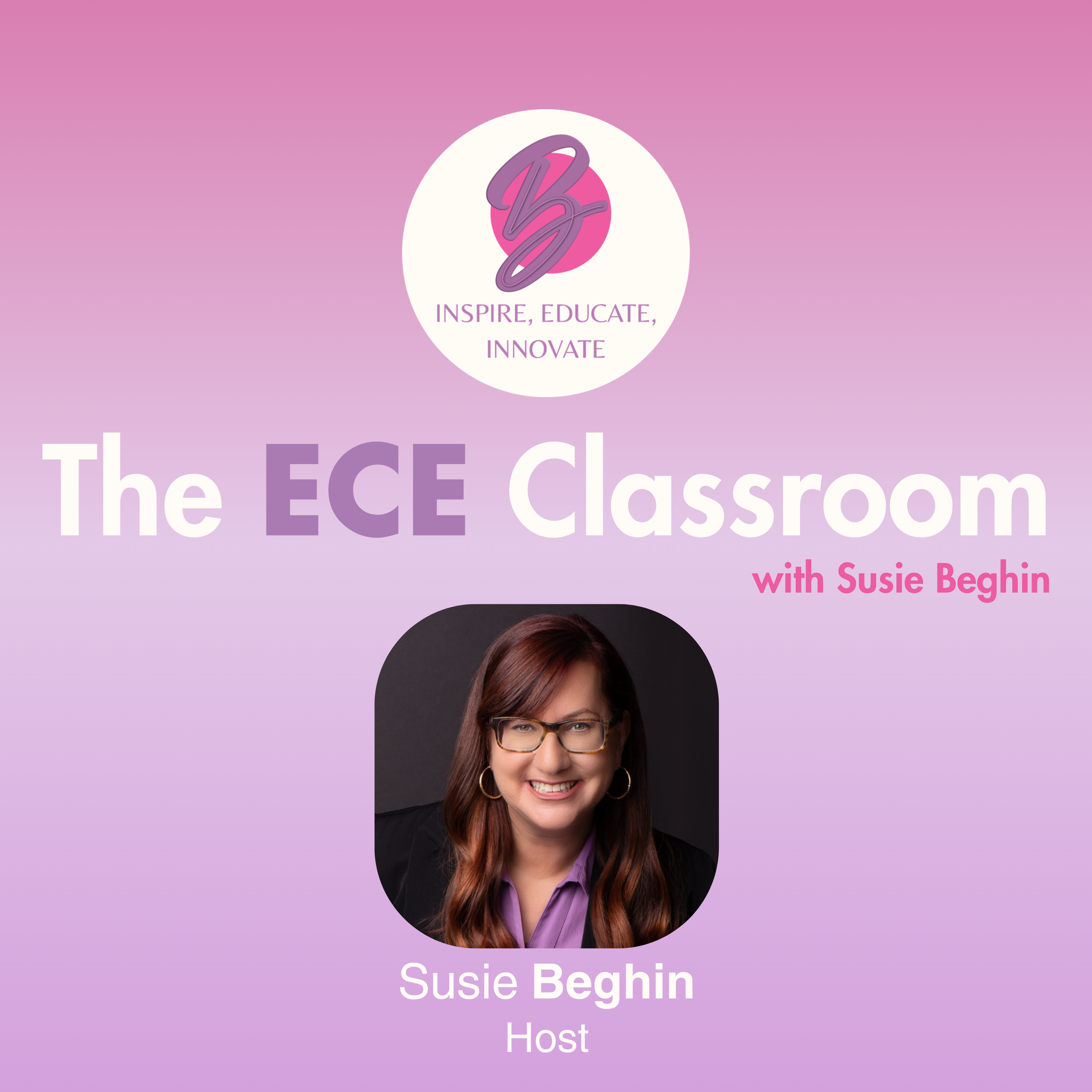Navigating Speech Delays in Early Childhood Education
The ECE Classroom – Episode 7- Navigating Speech Delays in Early Childhood Education
by Susie Beghin, RECE, Founder of Alpha’s Discovery Kids
In a recent episode of the ECE Classroom Podcast, I had the pleasure of speaking with Mary Plain, a dedicated speech and language pathologist from Hello Speech. Together, we explored some of the most important aspects of speech and language development in early childhood education. Our conversation was filled with valuable insights for parents, educators, and speech therapists alike, including early identification of speech delays, the benefits of intervention, and practical strategies for supporting young children’s language development.
Why Early Identification of Speech Delays Matters
One of the primary topics we covered was the critical importance of identifying speech delays early. Mary highlighted that some signs of speech and language delays can start to show as early as 18 months. When caught early, these delays are more easily addressed, often preventing potential difficulties down the road in both communication and academics. Early childhood is a crucial period of brain development and language acquisition, so recognizing and addressing delays early on can make a big difference in a child’s ability to thrive.
As educators and parents, we’re often in the best positions to observe these early signs, which makes understanding what to look for essential. Noticing if a child has limited vocabulary, difficulty following instructions, or struggles with using gestures to communicate can be the first step toward intervention that sets them up for future success.
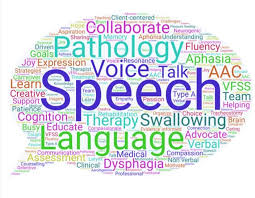 Understanding the Difference Between Speech and Language
Understanding the Difference Between Speech and Language
During our conversation, Mary clarified an important distinction that’s often overlooked: the difference between “speech” and “language.” While we sometimes use these terms interchangeably, they actually refer to separate aspects of communication. Speech is about the verbal sounds children make, while language includes both verbal and nonverbal communication skills—such as gestures, expressions, and comprehension.
This distinction is important for educators and parents to grasp, as it helps us to better understand and identify which areas of communication a child might need help with.
Destigmatizing Speech and Language Services
A key point that Mary emphasized was the need to destigmatize speech and language services. Many parents may feel hesitant or embarrassed about seeking help for their child, but speech services are beneficial for children across a range of developmental stages. There is a common misconception that speech therapy is only for children with severe challenges, but it can support various aspects of language development, even when delays are mild or just emerging.
One of our responsibilities as educators is to encourage open, empathetic conversations with parents about their child’s development. By normalizing speech services as a regular part of a child’s educational journey, we can make parents feel more comfortable seeking support and reinforce that early intervention is often in their child’s best interest.
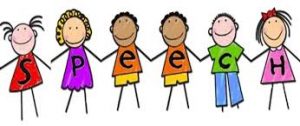 Strategies to Support Language Development
Strategies to Support Language Development
Mary provided several practical strategies for educators and parents to support language development, which I found especially helpful:
- Use Visual Aids: Picture cards, illustrated schedules, and other visual supports help children follow routines and understand instructions, especially if they’re struggling with receptive language.
- Model Gestures and Expressions: Using clear gestures and facial expressions helps children associate meaning with spoken words, enhancing their understanding of verbal communication.
- Encourage a Total Communication Approach: This approach emphasizes the use of any available communication methods—words, gestures, and visual aids—allowing children to express themselves in ways that feel natural to them.
- Promote Both Receptive and Expressive Language: Receptive language is about understanding spoken language, while expressive language is about sharing ideas. Activities like storytelling, following instructions, and encouraging children to describe their thoughts can help strengthen both areas.
- Foster Peer Interactions: Structured play and group activities encourage children to use both verbal and nonverbal communication, building confidence in their language abilities.
The Impact of Early Intervention and Collaboration
A major takeaway from this episode is that early intervention has a significant positive impact on children’s lives. When children receive support early, they’re more likely to hit developmental milestones, which in turn boosts their confidence, academic success, and social skills. Early intervention not only benefits the individual child but also enhances the classroom environment by promoting inclusive communication strategies.
Final Thoughts
My conversation with Mary Plain on the ECE Classroom Podcast underscored the profound role that speech and language development plays in early childhood education. By identifying speech delays early, implementing supportive strategies, and encouraging open discussions with parents, we can help children build a strong foundation in communication. Destigmatizing speech services and normalizing early intervention are steps that empower parents and educators to give children the support they need to thrive.
Stay tuned for more insightful discussions on early childhood education, parenting, and educator empowerment. Let’s continue to learn, grow, and make a difference in the lives of our students every day.
You can listen to the podcast on your favorite podcast platform, or by clicking here: https://open.spotify.com/show/7Hg7rTtRQggsVSCbbOdvP2?si=paCEPiCRRGK7yOfrTTsh8Q
Parents are The First Educators
Parents are The First Educators
by Susie Beghin, RECE, Founder of Alpha’s Discovery Kids
In the latest episode of my podcast, The ECE Classroom, I had the pleasure of interviewing Amanda DaCosta, a supervisor at Alpha’s Discovery Kids Preschool and Daycare. Our conversation was all about the importance of play in early childhood education and how parents can get involved to support their children’s learning and development. The insights Amanda shared are valuable for both educators and parents.
The Importance of Play
Play is not just a fun activity for children; it is a fundamental aspect of their learning and development. Research consistently shows that children learn best through play and in our discussion, Amanda emphasized that play is the best way to engage children in academics and other developmental milestones. It allows children to explore, create, and learn at their own pace. By understanding the significance of play, parents can better support their children’s growth and learning experiences.

Parents as the First Educators
One of the key themes of our conversation was the recognition of parents as the first and best educators for their children. Amanda passionately stated, “Parents are the first, I think the best educator because they know the child best.” This perspective highlights the critical role parents play in shaping their child’s educational journey.
Parents often underestimate their influence on their child’s education. By being actively involved in their child’s play, parents can help reinforce concepts learned in preschool or daycare. For example, if a child is learning about colors, parents can incorporate color games during playtime at home. This not only solidifies the child’s learning but also strengthens the bond between parent and child.
Utilizing Everyday Household Items
Amanda shared practical tips on how parents can use everyday household items for play and learning. She encouraged parents to look around their homes for resources that can stimulate creativity and exploration. Simple items like cardboard boxes, kitchen utensils, and art supplies can become powerful tools for imaginative play. This approach not only makes learning accessible but also reinforces the idea that education can happen anywhere, not just in a classroom setting.
The Four Pillars of Learning
We also discussed the “four pillars of learning” that we believe are essential for child development:
- Language and Literacy: Encouraging reading and storytelling to enhance language skills. This can include reading aloud, discussing stories, and even creating their own stories together.
- STEAM: Integrating science, technology, engineering, arts, and mathematics into play to foster critical thinking. Simple experiments, building projects, and artistic activities can spark a child’s interest in these areas.
- Physical Activity and Nutrition: Promoting healthy habits through active play and nutritious meals. Physical activity is crucial for developing motor skills and overall health, while nutrition plays a key role in cognitive development.
- Mindful Awareness: Teaching children to be present and aware of their feelings and surroundings. Mindfulness activities can help children manage their emotions and develop a sense of empathy towards others.
These pillars serve as a framework for parents and educators to create enriching experiences that support holistic development. By focusing on these areas, parents can ensure that they are nurturing well-rounded individuals who are prepared for future challenges.
The Importance of Communication
Another vital aspect we explored was the importance of communication between educators and parents. Amanda stressed that effective communication is crucial in demonstrating the value of play-based learning. By sharing insights, resources, and strategies, educators can empower parents to engage in their children’s learning journeys. Regular updates and workshops can help parents understand the significance of play in their child’s development, fostering a collaborative approach to education.
“Parents Learn to Play Too” Book
We also spoke about my book being released on Sept 15th, Parents Learn to Play Too, which serves as a guide for parents looking to incorporate play into their daily routines. This resource offers a variety of activities and tips that can easily be integrated into family life, making it an invaluable tool for fostering learning through play.
Favorite Activities for Parents and Children
As we wrapped up the episode, I reflected on just how much play impacts early childhood education. Amanda and I agreed that empathy, communication, and creativity are key to fostering a love of learning. Our conversation left me feeling inspired and excited to share these insights with listeners. It’s a powerful reminder of the critical role parents play in their child’s education, and how play is the foundation for learning.
Stay tuned for more insightful discussions on early childhood education, parenting, and educator empowerment. Let’s continue to learn, grow, and make a difference in the lives of our students every day.
You can listen to the podcast on your favorite podcast platform, or by clicking here: https://open.spotify.com/show/7Hg7rTtRQggsVSCbbOdvP2?si=paCEPiCRRGK7yOfrTTsh8Q
The ECE Classroom – Recap of Episode 4 – Lifelong Learning and Professional Development
The ECE Classroom – Recap of Episode 4 – Lifelong Learning and Professional Development
by Susie Beghin, RECE, Founder of Alpha’s Discovery Kids
“Lifelong learning isn’t just a buzzword; it’s essential for our growth and effectiveness as educators.”
In the latest episode of my podcast, The ECE Classroom, I had the honor of discussing the importance of lifelong learning and professional development for early childhood educators with Anna Valle Rivera. The conversation was insightful and inspiring, emphasizing the crucial role continuous education plays in our professional lives and the impact it has on the children we teach.
The Importance of Lifelong Learning
Lifelong learning is an ongoing process that allows educators to stay updated with the latest teaching strategies, tools, and research. It’s about more than just attending workshops and seminars; it’s a commitment to personal and professional growth. By engaging in lifelong learning, educators can enhance their teaching practices, adapt to new challenges and meet the diverse needs of their students.
In this episode, we explored various aspects of lifelong learning, including the benefits it brings to educators and students alike. Continuous education helps teachers to stay current with educational trends, understand new research findings, and apply innovative strategies in their classrooms. This leads to more effective teaching and better learning outcomes for children.
Professional Development: Empowering Educators
Professional development is a key component of lifelong learning. It involves activities and programs designed to enhance the knowledge, skills and competencies of educators. Through professional development, teachers can gain new insights, refine their teaching methods and build their confidence.
We discussed different forms of professional development, such as attending workshops and conferences, participating in webinars and engaging in reflective practice. These opportunities provide educators with the tools they need to continually improve their practice, share experiences and stay motivated.
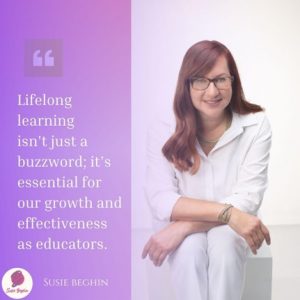
Practical Tips for Embracing Lifelong Learning
During the episode, I shared practical tips on how educators can embrace lifelong learning and make it a part of their daily lives:
- Attend Workshops and Webinars: Participate in local and online workshops and webinars to learn about the latest trends and strategies in early childhood education.
- Engage in Reflective Practice: Take time to reflect on your teaching experiences, identify areas for improvement and set goals for your professional growth.
- Join Professional Networks: Connect with other educators through professional organizations and online communities. These networks provide valuable resources, support and opportunities for collaboration.
- Read Educational Literature: Stay informed by reading books, journals and articles on early childhood education. This helps you keep up with new research and best practices.
- Pursue Advanced Degrees or Certifications: Consider furthering your education through advanced degrees or specialized certifications. This not only enhances your knowledge but also opens up new career opportunities.
The Impact on Children
The benefits of lifelong learning and professional development extend beyond educators. When teachers are well-informed and skilled, they can create richer, more engaging learning environments for their students. This leads to better educational experiences and outcomes for children.
Engaged and motivated educators are more likely to implement innovative practices, use effective teaching strategies and create a positive classroom atmosphere. This fosters a love of learning in children and supports their overall development. By continuously improving their practice, educators can better meet the individual needs of each child and help them reach their full potential.
Takeaways from the Episode
- Lifelong learning is vital for the growth and effectiveness of early childhood educators.
- Professional development empowers teachers to stay updated with the latest educational trends and strategies.
- Practical tips for embracing lifelong learning include attending workshops, engaging in reflective practice, and joining professional networks.
- The benefits of lifelong learning and professional development extend to children, leading to better educational experiences and outcomes.
You can learn more about Anna and her work at @earlyyearsthriving.
Stay tuned for more insightful discussions on early childhood education, parenting, and educator empowerment. Let’s continue to learn, grow, and make a difference in the lives of our students every day.
You can listen to the podcast on your favorite podcast platform, or by clicking here: https://open.spotify.com/show/7Hg7rTtRQggsVSCbbOdvP2?si=paCEPiCRRGK7yOfrTTsh8Q
The ECE Classroom – Recap of Episode 3 – Play-based Learning: Fostering Autonomy and Belonging in the Classroom
The ECE Classroom – Recap of Episode 3 – Play-based Learning: Fostering Autonomy and Belonging in the Classroom
by Susie Beghin, RECE, Founder of Alpha’s Discovery Kids
“Play-based learning is more than just unstructured free play” – Susie Beghin
In the latest episode of my podcast, The ECE Classroom, I had the pleasure of discussing play-based learning with Erica Saccoccio, owner of A Family Tree Child Care. Erica’s passion for early childhood education shone through as she shared valuable insights on making play-based learning both fun and educational.
Play-Based Learning: Fun with a Purpose
Erica emphasized that play-based learning should be engaging and enjoyable for children while also having a clear learning objective. This approach ensures that children are not only having fun but are also developing crucial skills. She highlighted the importance of using intentional materials and providing guidance to children during their play. By carefully selecting materials and activities, educators can create rich learning experiences that foster development across various domains.
Observation-Based Learning
One of the key points Erica discussed was the concept of observation-based learning. She stressed how important it is for educators to observe how children interact with materials and each other. These observations can provide deep insights into each child’s learning style, interests, and developmental needs, allowing educators to tailor their teaching strategies accordingly.
The Role of Teacher Engagement
Our conversation also highlighted the crucial role of teacher engagement and enjoyment in the learning process. When teachers are genuinely involved and enthusiastic about the activities, it creates a positive and dynamic learning environment. This not only enhances the effectiveness of the learning experiences but also makes the process more enjoyable for both teachers and children.
Key Topics Discussed
- The Role of Routines: Erica explained how incorporating play into daily routines can be a great way to engage children and promote their social and emotional development. Routine activities, when infused with playful elements, become more enjoyable and meaningful for children.
- Children’s Autonomy: Allowing children to have a say in their activities fosters independence and confidence. Erica highlighted the importance of giving children choices and respecting their preferences, which helps them feel valued and understood.
- Communicating with Parents: It’s essential to help parents understand the significant benefits of play-based learning. Erica and I discussed strategies for communicating with parents and involving them in their child’s learning journey, ensuring they appreciate the value of play in early childhood education.
My Five Key Principles of Play
During the episode, I also shared my five key principles of play, which are designed to create a safe and nurturing environment for children to learn, explore, and express themselves:
- Follow the Child’s Lead: Allow children to guide their play and explore their interests.
- Engage in Meaningful Conversation: Use play to have meaningful interactions and discussions with children.
- Ask Open-Ended Questions: Encourage children to think creatively and critically by asking questions that don’t have a single correct answer.
- Play at the Child’s Physical Level: Join children in their play environment, whether it’s on the floor, outside, or at a table.
- Combine Free Play and Intentional Play: Balance unstructured play with activities that have specific learning goals.
Takeaways from the Episode
- Play-based learning should be enjoyable and goal-oriented.
- Intentional materials and teacher guidance are crucial.
- Observation-based learning helps in understanding and guiding children.
- Routines can be playful and involve children in decision-making.
- Educating parents about the benefits of play-based learning is vital.
Stay tuned for more insightful discussions on early childhood education, parenting, and educator empowerment. Let’s continue to create engaging, purposeful, and joyful learning experiences for our children.
You can listen to the podcast on your favorite podcast platform, or by clicking here: https://spotifyanchor-web.app.link/e/OPl10EGzNIb
The ECE Classroom – Recap of Episode 1 – Educator Engagement and Empowerment
The ECE Classroom – Recap of Episode 1 – Educator Engagement and Empowerment
by Susie Beghin, RECE, Founder of Alpha’s Discovery Kids
“Your program is only as good as the educators who are delivering it.” – Susie Beghin
I am thrilled to have released our very first episode of “The ECE Classroom” podcast, where we focused on one of the most critical aspects of early childhood education: the educators. I wanted to take this opportunity to give a special shout-out to all the early childhood educators out there. Your hard work and dedication are truly appreciated, and this episode is dedicated to you.
During our episode, we discussed the importance of educator empowerment and engagement. I was honored to welcome a special guest, Anisha Angela, an early childhood education coach and expert with over 14 years of experience in the field. Anisha shared invaluable insights into the challenges educators are facing today, especially in light of the COVID-19 pandemic.
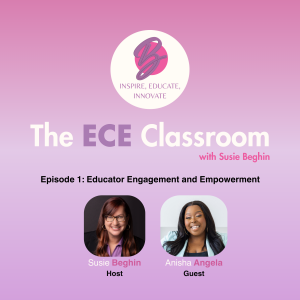
One significant issue we explored is the prevalence of burnout among educators. Anisha highlighted that the burnout experienced by educators today is not the usual nine-to-five fatigue; it runs much deeper and leaves educators questioning their purpose and feeling disconnected from their work.
As Anisha pointed out, burnout not only affects educators but also impacts the children in their care. When educators are burnt out, they may lack the creativity and energy needed to provide high-quality education and care to young children.
We also discussed the need for educators to adapt to a constantly changing environment. With the onset of COVID-19, educators had to navigate new norms and restrictions, often leading to feelings of uncertainty and stress. To address these challenges, we spoke about the importance of workplace harmony and the need for educators to support one another. Anisha emphasized that creating a dynamic team environment where personal and professional lives can coexist is essential for combating burnout and fostering a supportive workplace culture.
Anisha and I are both passionate about educator empowerment and engagement. We believe that reconnecting with one’s “why” is essential for early childhood educators to feel engaged, empowered, and valued in their roles. By reflecting on what initially drew them to the field of early childhood education, educators can rediscover their passion for their work.
A heartfelt thank you to Anisha for being our first guest on “The ECE Classroom” podcast. Stay tuned for more insightful discussions on early childhood education, parenting, and educator empowerment.
You can listen to the podcast on your favourite podcast platform, or by clicking here: https://spotifyanchor-web.app.link/e/OPl10EGzNIb
You can find Anisha on any of the following platforms:
Instagram: Your Early Childhood Coach✨
Facebook: AnishaAngella.co
X (formerly Twitter): AnishaAngella.co (@AnishaAngella)
Youtube: Anisha Angella
Website: www.anishaangellabooks.ca
General Email: info@anishaangellabooks.ca
Anisha(CEO) Email: anishaangellabooks@gmail.com
The ECE Classroom – New Podcast for early childhood educators
The ECE Classroom with Susie Beghin
by Susie Beghin, RECE, Founder of Alpha’s Discovery Kids
“Educators are the lifeblood of the early child care system.” – Susie Beghin
I am thrilled and excited to announce the launch of my brand new podcast, ‘The ECE Classroom with Susie Beghin.’ Dedicated to exploring key topics in early childhood education, each episode offers insightful discussions and practical advice and is designed to inspire, inform, and empower educators, home care providers, and parents alike. With my background in early childhood education and daycare ownership, I am passionate about nurturing young minds and supporting those who work tirelessly to shape the future generation.

In our inaugural episode, I am delighted to welcome Anisha Angela as our guest speaker. Anisha is an Early Childhood Education (ECE) coach and expert with over 14+ years of experience in the field. Her extensive background includes leadership roles in childcare programs, teaching positions at college programs, and overseeing multiple childcare locations as a senior manager.
As the CEO and Founder of “The Early Childhood Coach + Co,” Anisha is committed to supporting the success of fellow ECE professionals through consulting, coaching, and training. With her wealth of knowledge and experience, Anisha shares invaluable insights into the current challenges facing educators, including burnout and stress, and offers practical tips for reigniting the spark within the classroom.
We hope you’ll join us on this journey of learning and growth as we strive to support and uplift the early childhood education community.
Listen to the podcast here: https://spotifyanchor-web.app.link/e/OPl10EGzNIb
Connect with Anisha on her social channels to stay updated on her insights and upcoming events:
Instagram: @anisha.theecc
Facebook: @AnishaAngella.co
Twitter: AnishaAngella.co (@AnishaAngella)
Youtube: Anisha Angella
Website: www.anishaangellabooks.ca
General Email: info@anishaangellabooks.ca

